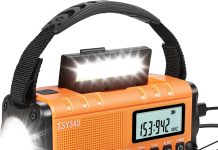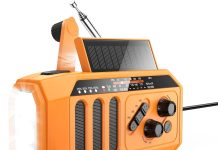Do you ever find yourself wondering if it’s illegal to let a few choice expletives slip during your conversations on CB radio? Well, you’re not alone. Many CB radio enthusiasts have pondered the same question. In this article, we’ll shed some light on whether or not it’s actually against the law to add a little colorful language to your conversations over the airwaves. So, let’s explore the legality of swearing on CB radio and find out if you can let loose or if you need to watch your language.
Review contents
Laws and Regulations regarding CB Radio usage
CB (Citizens Band) Radio usage is regulated by various laws and regulations to ensure a safe and respectful communication environment for CB Radio users. These regulations are put in place to protect the public interest, promote efficient communication practices, and prevent misuse of the airwaves. It is essential for CB Radio users to familiarize themselves with these laws and regulations to avoid legal consequences and maintain good communication etiquette.
FCC Regulations
In the United States, the Federal Communications Commission (FCC) is responsible for regulating CB Radio usage. The FCC has specific rules and regulations that govern the use of CB Radio frequencies, power output limits, and acceptable communication practices. These regulations are outlined in Code of Federal Regulations (CFR), Title 47, Part 95, which is enforceable by law.
CB Radio users in the United States must adhere to power limitations, which are set at a maximum of four watts of power output. The FCC also specifies the channels that can be used for communication and sets certain technical requirements, such as the use of only approved CB Radio equipment. Additionally, the FCC prohibits the use of CB Radio for certain activities, such as broadcasting advertisements or using CB Radio for commercial purposes.
Countries with specific restrictions
While CB Radio regulations and restrictions may vary from country to country, many nations have similar laws regarding CB Radio usage. It is vital for CB Radio users to research and understand the regulations in their respective countries to avoid any legal implications.
Some countries impose restrictions on CB Radio usage due to various reasons, including the need to allocate limited frequencies and preventing interference with other communication systems. These restrictions may include power output limits, specific channel usage, or licensing requirements.
It is advisable to consult with the relevant telecommunications or regulatory authority in your country to ensure compliance with the specific laws and regulations regarding CB Radio use.
Obscenity and Indecency Laws
When using CB Radio, it is important to be mindful of obscenity and indecency laws. Obscenity and indecency laws aim to prevent the use of offensive or inappropriate language in public communications.
Definition of obscenity and indecency
Obscenity refers to material or language that appeals to prurient interests, depicts sexual acts in an offensive manner, and lacks serious literary, artistic, political, or scientific value. Indecency, on the other hand, generally refers to language or material that is patently offensive and does not pertain to sexual content. The specific definitions and applications of these terms may vary depending on jurisdiction.
Applicability to CB Radio communications
CB Radio communications are subject to obscenity and indecency laws, just like any other form of public communication. CB Radio frequencies are considered public airwaves, and therefore, the use of offensive or indecent language can be deemed illegal.
While CB Radio channels provide a casual and often informal communication platform, it is crucial for users to maintain a respectful and family-friendly atmosphere. The use of offensive or inappropriate language on CB Radio not only violates obscenity and indecency laws but can also negatively impact fellow CB Radio users and create an unpleasant environment.
Fines and Penalties
Violating CB Radio laws and regulations can result in fines and penalties. These consequences are intended to deter illegal activities and encourage compliance with the rules and regulations set forth by the regulatory authorities.
FCC fines for illegal CB Radio use
In the United States, the FCC has the authority to impose fines for illegal CB Radio use. These fines can range from several hundred to tens of thousands of dollars, depending on the severity of the violation. The FCC takes violations of CB Radio regulations seriously and actively enforces compliance through monitoring and enforcement efforts.
Legal consequences in different countries
Legal consequences for illegal CB Radio use vary from country to country. In some nations, the telecommunications regulatory authority may impose fines or penalties for non-compliance with CB Radio regulations. Additionally, repeat offenders may face more severe consequences, such as the suspension or revocation of their CB Radio licenses.
It is crucial for CB Radio users to understand the potential legal implications of violating CB Radio laws and regulations in their country and take necessary precautions to avoid any fines or penalties.
CB Radio Etiquette
CB Radio etiquette plays a crucial role in ensuring smooth and effective communication between users. Good communication practices help build a supportive and respectful community on the airwaves.
Importance of good communication practices
Effective communication practices on CB Radio enhance the overall user experience and promote a sense of camaraderie among users. Following proper etiquette ensures that messages are transmitted clearly, without interruption or confusion. It is essential to use a clear and concise language, allowing others to understand and respond promptly.
Additionally, observing good communication practices involves allowing others to speak without interruption, listening actively, and avoiding excessive use of jargon or acronyms that may confuse other users. By practicing good communication habits, CB Radio users contribute to a positive and friendly environment on the airwaves.
Respecting others on the airwaves
Respect for fellow CB Radio users is a fundamental aspect of CB Radio etiquette. It is crucial to remember that CB Radio channels are shared among a diverse group of individuals, each with their own perspectives and communication needs. Respecting others means refraining from discriminatory, offensive, or abusive language and refraining from engaging in arguments or disputes on the airwaves.
It is important to understand that CB Radio channels are a public forum, and maintaining a respectful approach to communication fosters a sense of community among users. By treating others with kindness and courtesy, CB Radio users can help create a welcoming and inclusive atmosphere for everyone.
Monitoring CB Radio Channels
CB Radio channels are actively monitored to ensure compliance with regulations and to identify any misuse or violations of the law. Monitoring efforts are carried out by both regulatory authorities and citizens who take an active interest in maintaining a safe and law-abiding CB Radio environment.
FCC monitoring and enforcement
The FCC monitors CB Radio channels through various means, including the use of specialized monitoring equipment. The goal of FCC monitoring is to detect and deter illegal activities, including the use of illegal frequencies, excessive power output, or offensive language that violates obscenity and indecency laws.
When violations are detected, the FCC has the authority to enforce penalties, including fines or other appropriate legal actions. Monitoring and enforcement efforts by the FCC help ensure that CB Radio users abide by the regulations and maintain a respectful and lawful environment on the airwaves.
Citizen monitoring
In addition to FCC monitoring, citizen monitoring also plays a role in promoting compliance and reporting any violations. CB Radio enthusiasts and concerned citizens can actively monitor CB Radio channels and report any illegal or inappropriate activities to the regulatory authorities.
Citizen monitoring serves as an additional line of defense in maintaining a safe and respectful communication environment. By reporting violations to the appropriate authorities, CB Radio users can contribute to the overall well-being of the CB Radio community and help eliminate any illegal or disruptive activities on the airwaves.
Handling Inappropriate Language on CB Radio
Encountering inappropriate language on CB Radio can be discouraging and disruptive to the overall communication environment. It is important for CB Radio users to know how to address and minimize the occurrence of offensive interactions.
Report to the FCC or local authorities
When encountering offensive or inappropriate language on CB Radio, it is crucial to report such instances to the FCC or local authorities, depending on the jurisdiction. By reporting these incidents, CB Radio users can play an active role in upholding the regulations and promoting an environment free from offensive or inappropriate behavior.
Providing detailed information about the incident, such as the time, channel, and specific language used, can assist authorities in taking appropriate actions. Reporting such incidents not only helps protect fellow CB Radio users but also contributes to maintaining a safe and respectful communication environment for all.
Steps to minimize offensive interactions
While it may not be possible to completely eliminate offensive language on CB Radio, CB Radio users can take steps to minimize its occurrence. Practicing good communication etiquette, being respectful to others, and actively discouraging offensive behavior can help create an environment where offensive interactions are less likely to occur.
Additionally, promoting awareness about the importance of respectful communication and educating fellow CB Radio users about the potential consequences of offensive language can foster a culture of mutual respect and discourage offensive behavior on the airwaves.
Emergencies and Swearing on CB Radio
In emergency situations, effective communication can be a matter of life and death. Protecting emergency communications from interference and ensuring clear communication channels are of paramount importance.
Protection of emergency communications
CB Radio users must prioritize emergency communications and refrain from using emergency channels for non-emergency purposes. During emergencies, it is crucial for CB Radio users to be vigilant and avoid interference with ongoing emergency communications. By respecting the importance of emergency channels, CB Radio users can assist in the swift and efficient handling of emergency situations.
Emergency situations and acceptable language
In emergency situations, the use of strong or emotionally charged language may be understandable but should still be avoided as much as possible. While it may be challenging to remain calm and composed during critical circumstances, it is essential to use clear and concise language without resorting to offensive or abusive speech.
Maintaining a calm and collected approach to communication during emergencies helps ensure that vital information is conveyed accurately and effectively. By practicing self-restraint and using acceptable language, CB Radio users can contribute to the smooth management of emergency situations.
Impact of Swearing on CB Radio
Swearing or using offensive language on CB Radio can have various negative effects on communication quality and fellow CB Radio users. It is important to understand the repercussions of such language and the potential harm it can cause.
Effects on communication quality
The use of offensive language can impair communication quality on CB Radio. Swearing or using indecent language can create confusion, interrupt conversations, and make it difficult for others to comprehend or respond to messages. Clear and concise communication is crucial on CB Radio channels, and offensive language hinders effective communication, affecting the overall user experience.
Negative impact on fellow CB Radio users
Swearing or using offensive language can create a hostile and unwelcoming environment for fellow CB Radio users. CB Radio channels are meant to be platforms for friendly and informative conversations, and the use of offensive language can make others feel uncomfortable or discouraged from participating.
Furthermore, offensive language can lead to arguments, disputes, or escalating tensions among users, negatively affecting the overall atmosphere on the airwaves. By avoiding offensive language, CB Radio users contribute to a positive and enjoyable communication experience for everyone involved.
CB Radio and Freedom of Speech
CB Radio usage raises questions about the interplay between freedom of speech and the need for regulation on public airwaves. While freedom of speech is a fundamental right, its exercise is subject to certain limitations, particularly in public communication mediums like CB Radio.
Interplay between freedom of speech and CB Radio
Freedom of speech allows individuals to express their opinions and ideas freely, without government interference. However, this freedom is not absolute and can be restricted to safeguard the public interest and protect the rights of others. In the case of CB Radio, the protection of public airwaves, prevention of interference, and maintenance of a respectful communication environment are paramount.
CB Radio regulations, including restrictions on offensive language, are aimed at striking a balance between individual freedoms and the public interest. By setting clear rules and regulations governing CB Radio usage, regulators aim to ensure that freedom of speech is exercised responsibly and without causing harm or undue disruption.
Limitations on freedom of speech on public airwaves
Public airwaves, including CB Radio channels, are subject to certain limitations on freedom of speech. These limitations are necessary to protect the public’s interest, prevent interference with other communication systems, and maintain a respectful and inclusive environment.
Obscenity and indecency regulations, as well as other limitations on CB Radio usage, are intended to prevent offensive or harmful language from impacting the communication experience for others. These limitations exist to strike a balance between individual rights and the need for a safe and respectful communication environment on public airwaves.
In conclusion, CB Radio usage is governed by laws and regulations to promote safe and effective communication practices. CB Radio users must familiarize themselves with these regulations, ensuring compliance and maintaining a respectful environment. Obscenity and indecency laws apply to CB Radio communications, necessitating responsible language usage. Violations of CB Radio regulations can result in fines and penalties. Monitoring efforts by regulatory authorities and citizens further ensure compliance and report any misuse. Handling inappropriate language involves reporting incidents and minimizing offensive interactions. Swearing during emergencies should be avoided to prioritize clear communication. Swearing on CB Radio negatively impacts communication quality and fellow users. The interplay between CB Radio and freedom of speech highlights the need for responsible exercise of individual freedoms on public airwaves. Limitations exist to protect the public interest and maintain a positive communication environment. By adhering to laws, regulations, and etiquette, CB Radio users can enjoy a safe and respectful communication experience.



































